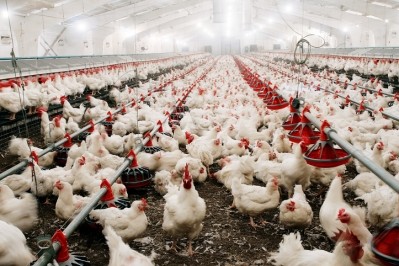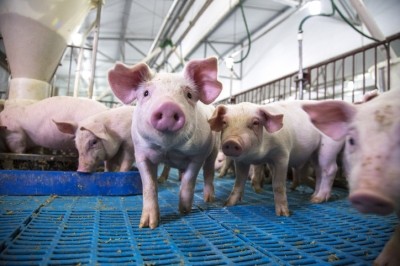Enzymatically modified canola meal may enhance broiler gut health

Replacing canola meal with its enzymatically modified counterpart did not improve the growth performance of broilers, but it positively affected gut health by modulating mucin secretion, the microbiota community, and the cecal concentration of short chain fatty acids, according to research published in the Journal of Animal Feed Science and Technology.
“Addition of enzymatically modified canola meal to the broiler chicken diet increased the presence of probiotic organisms and prebiotics in the gut and had more pronounced effect on the gut environment than dietary enzyme supplementation,” noted the authors, one of which is based at CBS Bio Platforms, with the others from the Department of Animal Science, University of Manitoba, in Winnipeg, Canada.
Canola meal (CM) is a co-product of the oil-crushing industry and is commonly used in poultry diets as a valuable protein source. The use of CM in poultry diets still concerns nutritionists due to its high dietary fiber content associated with low nutrient digestibility and low available energy content, reported the team.
Enzymatically modified canola meal (ECM) is a product obtained from the incubation of canola meal (CM) with a blend of specific carbohydrase enzymes.
And the researchers outlined how the incubation of canola meal with a blend of select enzymes results in a significant depolymerization of non-starch polysaccharides (NSP). Among the dietary fiber fractions present in plant feedstuffs, NSP have been identified as the main components that impair digestibility and absorption of nutrients, often due to nutrient encapsulating effect of the cell walls, they explained.
The goal of the study was to evaluate the effects of ECM on growth of broiler chickens, ileal and cecal microbiota proliferation, concentration of short chain fatty acids (SCFA), mucin production, and nutrients, including NSP utilization. The authors hypothesized that modifying the NSP of CM with a multi-carbohydrase preparation would result in a value-added end-product, which would exhibit the prebiotic and probiotic properties for broiler chickens, promoting gut health and function.
The addition of multi-carbohydrase enzymes directly to the CM-containing diets was also included in the study to explore if any gut health and function effects were comparable or not to those of ECM, said the animal scientists.
Methodology
Birds were fed a control starter diet throughout the four-day pre-experimental period to allow for yolk sac absorption. On day four, chicks were randomly allocated to five experimental diets using eight birds per cage and eight replicate cages per treatment.
Birds were fed the starter (4–14d of age, 100 g/kg CM) and grower (14–21d of age, 200 g/kg of CM) control diet, and control diets supplemented with ECM (Low and High) or enzymes (E1 and E2).
In the ECM-containing diets, ECM replaced either 50 g/kg (Low ECM diet) or the entire CM (High ECM diet) of the control diets.
In the E1 and E2 diets, the enzyme blend was supplemented at 1.25 g/kg and 12.5 g/kg of the starter control diet and 2.5 g/kg and 25 g/kg of the grower control diet, respectively.
“The dosage of enzymes in experimental diets was much higher than that used in commercial practice, and it was applied here to prove the concept.”
Results
Replacing CM with ECM did not affect growth performance, but significantly increased the apparent total tract NSP digestibility and nitrogen-corrected apparent metabolizable energy content, found the team.
They also saw that the ECM-containing diets decreased sialic acids secretion on day 21 and increased the abundance of Lactobacillus in the ileum and ceca compared to the control, E1, and E2 during the trial.
The abundance of Escherichia coli (E. coli) was significantly lower in ceca of birds fed the High ECM grower diets compared to the control, observed the experts.
Total SCFA in cecal digesta of birds fed High ECM starter diet significantly increased compared with the control, they reported.
Enzyme supplementation improved nutrient digestibility, but the strategy demonstrated somewhat lower potential towards modulating the gut microbiome when compared to ECM, said the team.
“Replacing CM with ECM improved nutrient digestibility and increased the presence of probiotic organisms which was not observed in the enzyme supplemented diets. Therefore, ECM can improve gut health and could be used as a valuable feed ingredient or additive,” they concluded.
Source: Journal of Animal Feed Science and Technology
Title: The effect of enzymatically modified canola meal on growth performance, nutrient utilization, and gut health and function of broiler chickens
Authors: Y Niu, A Rogiewicz, L Shi, R Patterson, BA Slominski












